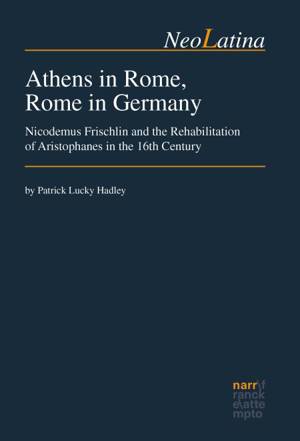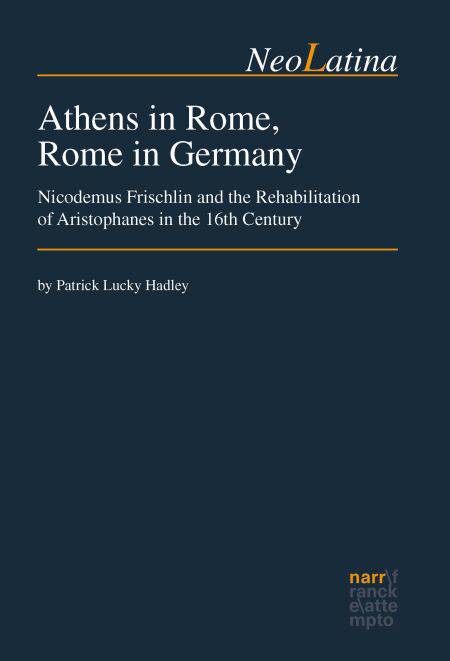
Bedankt voor het vertrouwen het afgelopen jaar! Om jou te bedanken bieden we GRATIS verzending (in België) aan op alles gedurende de hele maand januari.
- Afhalen na 1 uur in een winkel met voorraad
- In januari gratis thuislevering in België
- Ruim aanbod met 7 miljoen producten
Bedankt voor het vertrouwen het afgelopen jaar! Om jou te bedanken bieden we GRATIS verzending (in België) aan op alles gedurende de hele maand januari.
- Afhalen na 1 uur in een winkel met voorraad
- In januari gratis thuislevering in België
- Ruim aanbod met 7 miljoen producten
Zoeken
Athens in Rome, Rome in Germany E-BOOK
Nicodemus Frischlin and the Rehabilitation of Aristophanes in the 16th Century
Patrick Lucky Hadley
€ 70,40
+ 70 punten
Omschrijving
The bawdy comedies of Aristophanes gradually began to attract more attention among learned circles in the later 16th century. This trend culminated in 1586, when Nicodemus Frischlin produced new and strikingly original Latin versions of five plays by Aristophanes. With this work Frischlin completely recast the place of Aristophanes in the Republic of Letters, forcing readers to approach him as a dramatist of tremendous contemporary relevance. Frischlin was able to rehabilitate Aristophanes by calling attention both to the practical advice his plays could give on the administration of a res publica, and to the light they could shed on serious problems concerning rhetorical education and political discourse within the troubled Holy Roman Empire under Rudolf II. This work aims to restore Frischlin's translations to their rightful place of honor within the broader reception tradition of Aristophanes and Old Comedy, while analyzing them within the context of Frischlin's own longstanding
campaigns for educational and political reform.
campaigns for educational and political reform.
Specificaties
Betrokkenen
- Auteur(s):
- Uitgeverij:
Inhoud
- Aantal bladzijden:
- 185
- Taal:
- Engels
- Reeks:
Eigenschappen
- Productcode (EAN):
- 9783823379232
- Verschijningsdatum:
- 15/09/2015
- Uitvoering:
- E-book
- Beveiligd met:
- Digital watermarking
- Formaat:

Alleen bij Standaard Boekhandel
+ 70 punten op je klantenkaart van Standaard Boekhandel
Beoordelingen
We publiceren alleen reviews die voldoen aan de voorwaarden voor reviews. Bekijk onze voorwaarden voor reviews.









